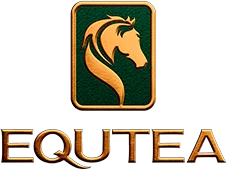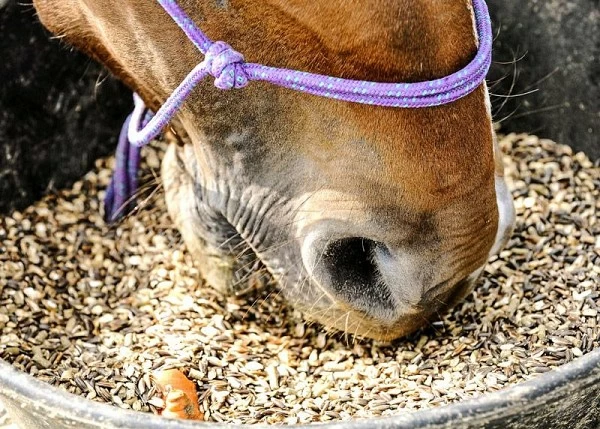FACTORS AFFECTING THE RATE AND MEASUREMENT OF FEED INTAKE FOR A CEREAL-BASED MEAL IN HORSES
08/07/2024
SUMMARY
The rapid intake of high-cereal, low-roughage meals may cause gastrointestinal and behavioral disorders. We investigated some of the factors that can affect the rate of intake (ROI) in four separate studies. Study 1 investigated the effect of chaff length and addition rate on the ROI of oats. The ROI decreased as more chaff was added to the diet, attaining significance (P < .05, n = 6) at levels above 15% addition and reaching a plateau at ∼50%. This was independent of stalk length (1.4 cm vs. 4.1 cm). Study 2 showed that meal size (varying from 0.5 to 4 g/kg BW) did not affect the ROI for a cereal-based meal, nor was ROI altered by the addition of 10% molasses (n = 6). Study 3 demonstrated that ROI changed markedly over the course of a meal, commencing at an average rate of 74 g/minute for the first 5 minutes and decreasing to 15.8 g/minute after 30 minutes (n = 6). Study 4 examined the effects of breed, BW, exercise, and gender in 71 horses. In Clydesdales, BW affected ROI (P < .05), and Clydesdales had a faster ROI than Thoroughbreds of similar BW (81.8 ± 6.8 vs. 66.0 ± 3.35 g/minute; P < .05). Exercise level, age, and gender did not impact ROI significantly. The results highlight the effectiveness of feeding chaff to slow ROI and demonstrate the need for a standardized protocol if ROI is to be compared between different studies.
FULL DOCUMENT:
https://www.sciencedirect.com/science/article/abs/pii/S0737080619306185


